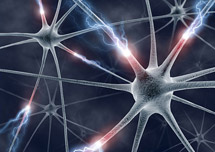
Persistence is continuation of effort and striving in the face of difficulty, opposition, or failure: it is a key characteristic of successful people across professional and academic disciplines. Persistence is evidenced by willingness to continue to try in the face of challenge. For students, this persistence can be a driving force to help them achieve their academic, as well as personal goals. The idea of persistence in the face of adversity is often described as an outcome of high motivation. For example, students with a high sense of self-efficacy are shown to persist longer through academic difficulty.
Educators and parents play a significant role in helping students develop persistence and apply effective effort—proven strategies paired with attitudes and beliefs that enable students to see the greatest benefit. They can reinforce a view of intelligence as malleable, or changeable, provide frequent and specific feedback to students on their academic progress, and encourage students to reflect on their own experiences with overcoming challenges and succeeding.
Educators can foster in students specific skills that are associated with effective effort, such as time management, organizational strategies, and goal setting. When students have a plan for how to deal with challenging academic situations that includes metacognitive strategies, or strategies for examining their own thinking, they are better equipped to continue to try when they struggle.
And classroom practice influences students’ effort as well. Students are more likely to persist in productive ways when teachers allow time for reflection and discussion; when assignments and tests include opportunities for error analysis; when teachers use questioning to uncover confusion as opposed to giving an answer right away; when teachers assign tasks that have clear outcomes and rubrics so students can self-assess; when teachers praise effort as opposed to outcomes; when teachers foster a community of learners in their classrooms; when they push students to honestly evaluate their struggles and their attributions for success and failure.
A related concept that refers to more long-term and sustained persistence is academic resilience—academic achievement despite a challenging or threatening circumstance in the educational process. Researchers have specifically examined the challenges, setbacks, and pressures associated with academics and argue for greater understanding of academic adversities and the most effective ways to deal with them.

Effort is a key part of learning. Click here to see a clip from the BBC documentary, The Human Body, which demonstrates how learning something new requires a great deal of effort at first, but over time, we can create stronger pathways in our brain that make once-challenging tasks seem effortless.